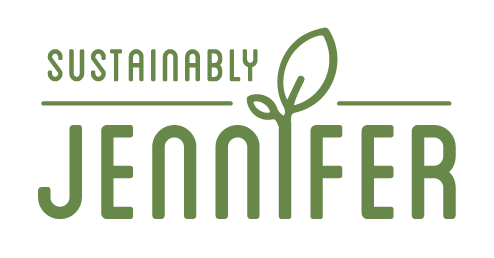Why Plastic
Our family is aiming to live a more sustainable life and part of that is creating less waste. When looking at our trash and recycling bins I found that there was quite a bit of plastic and so it seemed natural to start there. I am in the process of (re)reading “My Plastic Free Life” by Beth Terry. So far this book has been a good reminder of compelling reasons to quit plastic.
Extraction
Plastic is made from raw materials including petroleum and natural gas. These resources must be extracted from the earth via- fracking which leads to soil and waterways being polluted as well as methane released into the air.
Toxins
The process of making plastic releases toxins into the environment putting the workers, surrounding community and all living things in the area at risk. Super carcinogens accumulate in humans and wildlife and have detrimental impacts. In Mossville, a predominantly African American community in Louisiana, there are fourteen petro-chemical plants making it known as “cancer alley”. Residents experience high levels of diabetes, liver cancer and kidney related problems. Mossville has a record number of young women with endometriosis that have resulted in hysterectomies.
There are many additives in plastic (pigments, flame retardants, lubricants, etc.) These chemicals leach out of the plastic into our food, drinks and skincare products and into our bodies.
Plastic is FOR-EV-ERR
Meaning it is not biodegradable. Plastics stay in the landfills and the toxins are absorbed by surrounding soil and water. A lot of plastic ends up in the oceans. Many sea animals end up ingesting the plastic and eventually dying since they cannot digest the plastic. Sea animals can also get caught in the plastic debris in the oceans.
Downcycle
It feels good to be able to put items in the blue recycling bin verses the trash can but unlike paper, metal and glass that can be made into similar products plastic are usually downcycled. A plastic bottle is rarely turned back into a plastic bottle. I found when collecting my plastic over the month of February so much of it could not be recycled which means it ends up in landfills, waterways, oceans and then inside marine life (and even us!).
There are so many intersections - environmental, racial, gender, worker, immigrant, animal, and health. For me sustainability is about interconnectedness and interdependency- it’s not sustainable if the waterways, soil and air are polluted, it’s not sustainable if women’s reproductive health is compromised, it’s not sustainable if marine life are not thriving. The issues around plastic production, consumption and disposal are not isolated. Each part is connected and is impacted by the other.
How can I be about women’s rights over our bodies and not consider my use and purchase of plastic? How can I be vegan and not consider how my tofu container impacts animal and marine life? How can I care deeply about worker justice and not consider how the toxicity of the production of plastic impacts workers and their communities?
I find that I need reasons beyond “it’s good for me” to stick to something. So when shopping it’s helpful to have these social justice intersections in my head as a back-up when I really want that nutrition bar or bag of chips. AND as it is super hard to avoid plastic because it is EVERYwhere! Yet, each time I make a purchase I have the ability to make a choice that allows for me to live out my values more fully.
Side Note: I also found that if you give a 4 year old a few facts to watch out! Isis was telling Artemus (and others) how he was killing the animals with his purchase of plastic.


